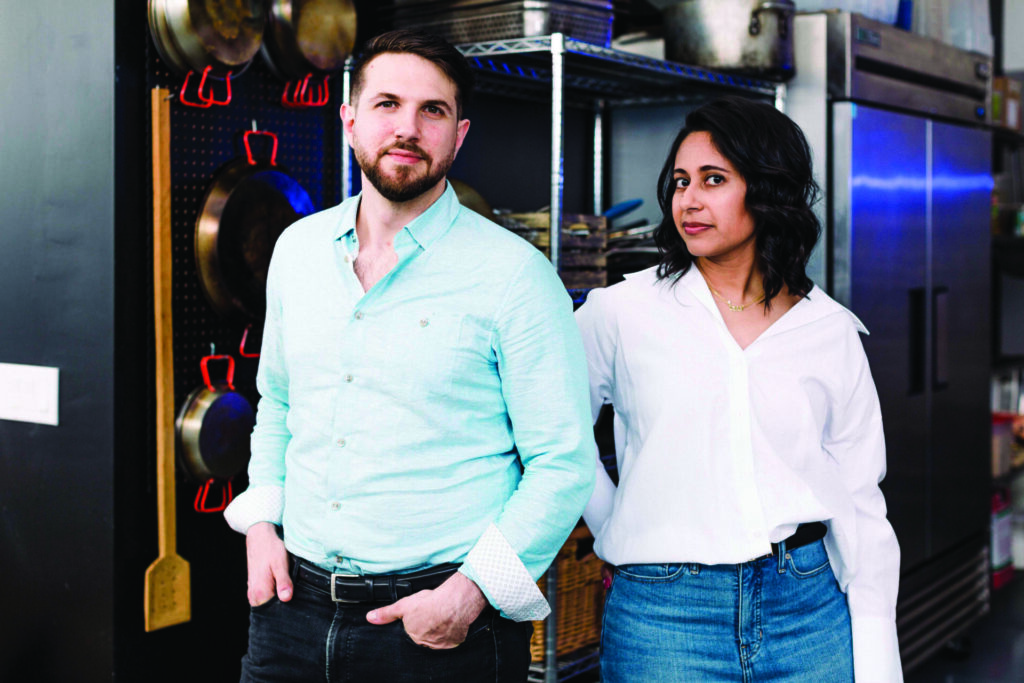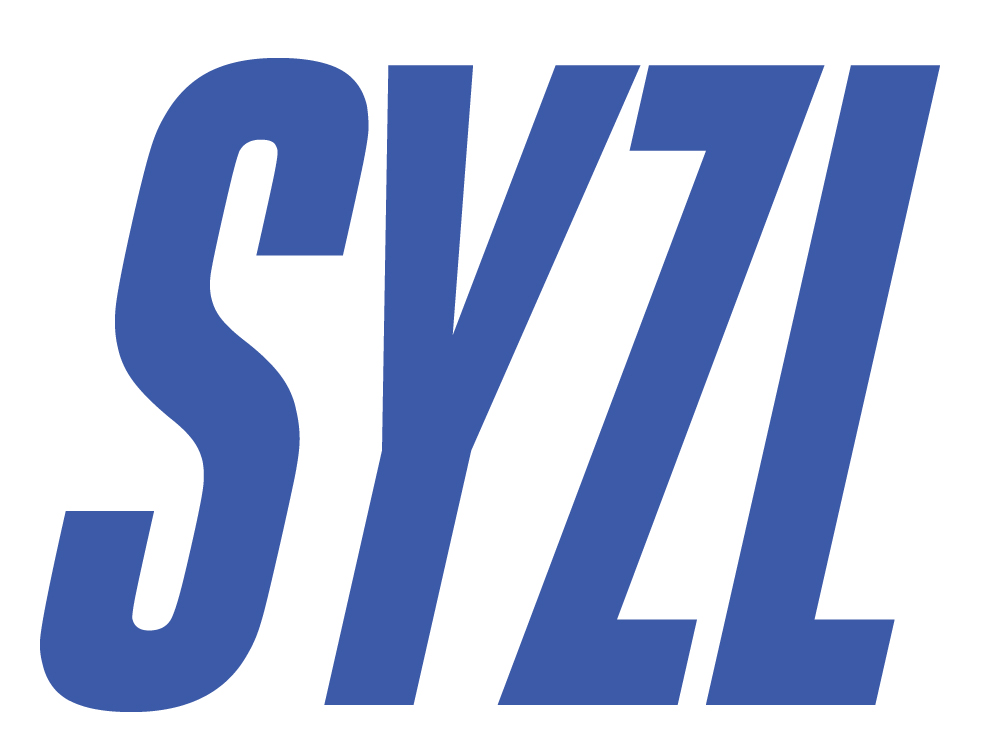REVOLUTION IN THE KITCHEN
Syzl’s mission to revolutionize kitchen space is driving new revenue for Ontario restaurants and new opportunities for food entrepreneurs
Syzl is transforming the gig economy for food entrepreneurs by offering a platform that connects chefs and small-scale food makers with certified, underutilized kitchen spaces. By simplifying the process with easy bookings and on-demand insurance, Syzl connects restaurants and commercial kitchens with new revenue streams, and allows food creators to start up and grow their businesses without committing to long-term leases or hefty infrastructure costs.
Azrah Manji-Savin, CEO & Co-Founder of Syzl, is transforming the way food entrepreneurs access kitchen space. As the driving force behind Syzl, an innovative kitchen marketplace app, she enables gig economy chefs and culinary creators to tap into safe, flexible kitchen spaces, helping them turn passion into profession, making it easier than ever for underrepresented cuisines and flavours to reach the mainstream.
MENU connected with Azrah to learn more about Syzl and how her tech background and entrepreneurial drive are helping fuel the future of foodservice.

MENU: So, the first thing I want to dive into is your story. Syzl is fascinating because it’s such a low-risk, high-potential tool for operators to optimize their revenue. Could you share your journey and how this solution came to be?
Azrah Manji-Savin: The story behind Syzl is really about both my co-founder and me—I can’t take all the credit. Our parents and families immigrated to Canada, and for many immigrant communities, the quickest and easiest way to make extra money and maintain ties to culture is through food. Growing up, I saw this firsthand. It’s how I fed myself during undergrad—through the aunties who sold food from home on paper plates wrapped in tin foil. That was how many families made extra income and stayed connected to their roots, but very few were able to grow and scale beyond that.
Most people who try to go bigger have to gamble everything—life savings or a second mortgage—to open a restaurant, and often that gamble doesn’t pay off. That always stayed with me.
Before Syzl, I worked at WeWork, helping launch their first enterprise models in Toronto and as the first employee in Alberta to open that market. I learned a lot about shared real estate and saw how beneficial it was for startups who needed flexible space. That led us to wonder: could we do something similar in the food industry? The pandemic accelerated this thought process, as we saw more and more independent food makers struggle with how to scale their operations. There were so many opportunities—TikTok, Shopify, Facebook Marketplace—but no clear path to safely and legally make and sell food.
We realized this was a huge problem that wasn’t being addressed—how do you navigate the logistics of equipment, health certifications, and insurance? After tons of research and conversations with chefs and restaurant owners, we knew this was a problem worth solving, and we wanted to be the ones to tackle it.
MENU: That’s amazing. When you started visualizing this idea in the early stages and speaking with industry people, what did you learn that most surprised you?
AMS: I was surprised by how long it took people to find space—three to six months on average just to get started! That was shocking. Even caterers or people selling at farmers’ markets would take that long to find a space, let alone open a restaurant. It was such a manual process—cold calling, relying on word of mouth, connecting through religious organizations, or through friends of friends. It was all unregulated and unreliable, and there was so much room for things to go wrong. That was a huge eye-opener.
MENU: What was the response when you first started sharing this idea with people in the industry?
AMS: The reception was overwhelmingly positive, especially from chefs and food entrepreneurs. I remember at our first RC Show, the product wasn’t even fully launched yet, but we were already getting feedback from industry veterans saying, “Where was this years ago? My career would have been so different!” That kind of validation was incredibly rewarding.
MENU: Your platform offers so much potential. Have you considered expanding into other areas, like facilitating distribution?
AMS: Distribution is a huge challenge for many food entrepreneurs, especially when it comes to finding customers and moving products from A to B. We’ve definitely heard this from a lot of people, and while it’s not our main focus right now, we’re always looking to innovate. For now, we’re really focused on solving the production and real estate bottlenecks, but we’re open to uncovering other opportunities as we grow.
MENU: Are there any new service releases planned for Syzl?
AMS: Yes! One of the big things we’re excited about is our single-day insurance product. It’s the first of its kind in Canada, allowing gig chefs to get insured for just a day, a few hours, or a weekend, making it more affordable and accessible. This is particularly important for those who are renting kitchen space on a temporary basis, as it eliminates one of the biggest pain points for restaurants: liability.
MENU: Who would typically use this single-day option?
AMS: It’s great for people like food entrepreneurs who make products like chili oil or baked goods. They can rent space for just a day or a few hours, make what they need, and then go back to selling at markets or online. They don’t have to commit to long-term leases or produce huge quantities that might not sell. It’s perfect for small-scale makers who want to keep overhead low.
MENU: It’s clear that Syzl is filling a real need in the industry. What strategic advice would you give to restaurant operators who are considering using your platform?
AMS: I’d say a common oversight is how operators benchmark their revenue streams. Many compare it to their core operations, like what they’d make during dinner service, but that’s not the right comparison. They should be asking whether this new revenue stream covers their base costs during times when they’d otherwise be closed. If it does, then it’s worth pursuing.
MENU: And for food makers—how can they get the best value from your platform?
AMS: Start small and use only what you need. It’s easy to overestimate how much time or space you require. Try the platform out, see how much demand you have, and adjust from there. It’s a big mental shift for those used to more traditional methods, but once they try it, they see the value.
MENU: Your platform must require a lot of vetting for both hosts and makers. What surprises your users the most?
AMS: For hosts, they’re surprised by how much we handle on their behalf—ID verification, food handling certifications, insurance, payments, and customer support. For makers, they’re often amazed by the flexibility and the sheer number of available spaces. The fact that they can rent without committing to a lease blows their minds.
MENU: What aspect of your business are you most proud of?
AMS: One of the things we’re most proud of is that Syzl is helping elevate underrepresented flavours and cuisines. So much amazing food is made by immigrant communities but doesn’t make it into the mainstream. Now, more of those flavours have the chance to be shared. It’s what gets me up in the morning.

Since its launch in 2022, Syzl has focused on growth within the Greater Toronto Area and Ontario, adding new kitchen listings regularly with plans to extend their reach across Canada as demand for flexible, short-term kitchen spaces continues to grow in both urban and rural areas. The Syzl team has also just announced they are now offering Canada’s first embedded insurance for commercial kitchens.
Learn more and sign up at: syzl.io









